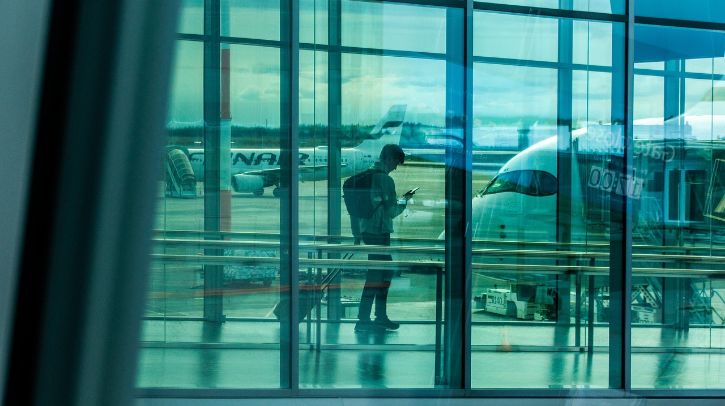A new study from Amadeus, Connected Journeys: How Technology Will Transform Travel in the Next Decade, explores the changing needs of passengers and the role that new and emerging technology plays.
Technology helps ease anxieties
Researchers surveyed 9,500 travelers, including those from China, France, India, Singapore, Spain, the UK and USA. It found that 90% of air travelers experience some level of anxiety during the travel experience, with worries affecting multiple stages of the journey. These concerns include packing (26%), going through security (27%), travel to the airport (26%) and the flight itself (24%). With these figures in mind, the report says that airports’ smart use of technology can play a critical role in improving the traveler experience.
Indeed, the research found that travelers are open to embracing innovative technologies that offer convenience and provide reassurance. For example, two-thirds (66%) show strong interest in remote baggage check-in, meaning luggage would be collected directly from their homes, which would potentially significantly reduce pre-trip anxiety.
Travelers trust in biometrics
Similarly, biometric gateways are favored by 69% of respondents and offer the promise of a smoother airport experience by eliminating repetitive document checks. According to Amadeus, decentralization is fundamental to the success and security of biometric technology. The report states, “Here, all information is stored on digital wallets or in-app, with verification handled locally and temporarily, using encrypted, consent-based data sharing. This boosts privacy, control, and security, as travelers decide when and where to share their information.” Beyond Amadeus’s own digital ID and biometric wallet, the technology is also provided through other initiatives, such as the International Air Transport Association’s (IATA) One ID system, interoperable with the recently enhanced Apple and Google ID wallets.
Other technology solutions already alleviating anxiety include real-time travel updates via apps (29%), digital wallets for secure document storage (27%), smart baggage tracking systems (26%) and integrated ‘super apps’ offering comprehensive travel management in one place (26%).
The double-edged sword of AI
Amadeus also found that people are increasingly turning to artificial intelligence (AI) to plan and manage their journeys, with generative AI (Gen AI) use up 64% compared with last year. Key benefits appreciated by travelers include significant time savings (42%), highly personalized recommendations (37%) and the discovery of new destinations (36%). Globally, travelers who used Gen AI in their planning felt more confident in their travel decisions (35%).
In fact, 64% of travelers responding to Amadeus’s survey said they would be willing to pay for an AI travel assistant that could help with in-trip information. And 17% reported they would be willing to pay up to 5% of the total value of the trip to benefit from such services.
However, the study also reveals areas where AI currently falls short. A quarter (25%) of respondents said they have experienced outdated or inaccurate information from AI-generated results, while another 25% struggled with AI’s inability to truly capture their personal preferences.
Putting it into practice
The study cites several real-world examples of how technology has improved passenger experiences and airport operations. These include self check-in and bag drop at Heathrow and JFK International airports; automated border control at Dubai International Airport; and biometric digital ID verification at Curaçao International Airport.
In related news, Dubai Department of Economy and Tourism partners with Amadeus to prototype travel technology

